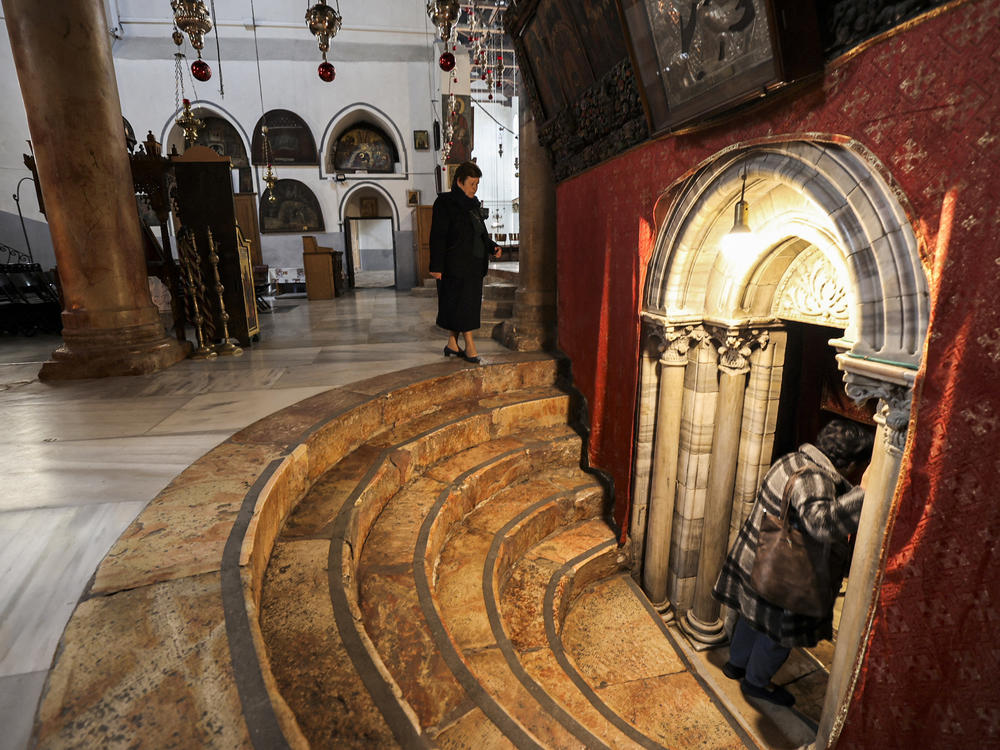Section Branding
Header Content
For a second Christmas, the Holy Land is closed to pilgrims because of COVID
Primary Content
Updated December 23, 2021 at 1:46 PM ET
The little town of Bethlehem usually teems with pilgrims this time of year, but the Holy Land is closed to international visitors for a second Christmas in a row due to the pandemic.
What are people missing? Husam Jubran, a veteran Palestinian tour guide from the town of Beit Sahour neighboring Bethlehem, took NPR to some of the sites associated with the birthplace of Jesus.
Beit Sahour is home to Shepherds' Field, a site venerated since Byzantine times as the spot where the Gospel of Luke says angels appeared to shepherds and announced Jesus' birth. Two other sites nearby also claim to be Shepherds' Field.
"If you want to go 100% archaeology, we can't prove," says Jubran. "For people coming for religious purposes, it's not about, 'Oh, prove it to me.' It's about the faith."
There are a lot of overlapping stories for a tour guide to tell in a Palestinian city in the Israeli-occupied West Bank, as well as overlapping religious traditions. The site of Shepherds' Field is also associated with the Book of Ruth in the Hebrew Bible.
In Bethlehem, the Church of the Nativity is where Helena, the mother of Roman Emperor Constantine, identified the birthplace of Jesus in the fourth century. Her original church was destroyed in the sixth century and rebuilt by Byzantine Emperor Justinian, then later augmented by the Crusaders.
Architectural elements from each of those periods exist today, from the original floor mosaic of the earliest church to the red limestone pillars of the Justinian reconstruction and the Crusaders' dazzling golden wall mosaics.
Downstairs is the traditional spot of Jesus' birth: a cave. Jubran says it makes sense that Jesus' manger would have been in a cave, where animals were kept in ancient times.
"When I travel in the West Bank, I go to some Palestinian villages, I see people till today living inside the caves, practicing what's been here for thousands of years," Jubran says.
Israel's entry ban on foreign visitors during the pandemic means there are none of the usual crowds at the spot where tradition says Jesus was born.
"When I was working — and I've been a guide for 20 years — I never came and found it empty," Jubran says.
Inside the cave, we are alone.
The digital version of this story originally appeared on the Morning Edition live blog.
Copyright 2021 NPR. To see more, visit https://www.npr.org.

